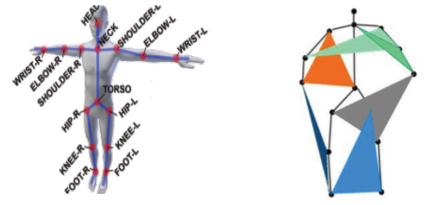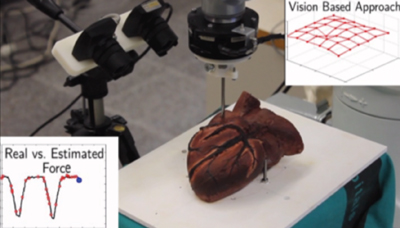
Former members
Prof. Alícia Casals | Group leader
Now: UPC / Associated researcher, IBEC
Description

Our current research within the HYPER project (Hybrid Neuroprosthetic and Neurorobotic Devices for Functional Compensation and Rehabilitation of Motor Disorders) is to search for new adaptive control algorithms focusing on specific actions, as the transition from sit to stand or keeping the walking pattern under internal or external perturbations. This control has to deal with disturbances caused by muscle synergies, taking into account unpredictable effects of artificial stimulation in muscles during rehabilitation therapies or other effects as fatigue or the own user’s attention to the therapy. In this field, the work carried out has been focused on developing a control system with variable hierarchy and a status evaluator that allows adapting the control variables, mainly the variable stiffness at each joint, to reach the desired response and stability. Being human-robot interaction a key factor in medical robotics, our research in assistive robotics is devoted to interpret human activity and the operation context so as to be able to program robots to cooperate proactively in assisting disabled in their daily tasks. This implies the extraction of relevant image features to recognize human posture and actions and relate them to the context environment and the evolution of tasks and activities, using recognition and learning techniques. The challenge is finding adequate algorithms that are reliable enough and can reduce the amount of data to process so as to be able to operate in real time. Figure 1 shows the original data, the human joints, and the reduction of triangles, trisarea feature, that define each posture in a sequence of poses corresponding to the human movement. For the adequate robot control this information has to be compatible with the environment status, thus perception and context interpretation is necessary. Further work has been done on the integration of multiple robot arms to deal with tasks that need cooperative actuation.

The research in surgical robots has progressed going deeper in the development of robot aids, as the analysis of tissues deformation aiming to solve problems as physiological movement detection for robot motion compensation or for estimation of the force applied on the tissues due to the lack of sensors to be integrated on the surgical tools. Fig. 2 shows a sequence of images of the heart and the changes produced on the heart surface by the forces applied. The image processing operates from the minimization of an energy functional using the l_1−regularized optimization class in which cubic b-splines are used to represent the changes produced on the heart surface. In technology transfer, much progress has been done in the spin-off, Rob Surgical Systems S.L, having already started the experimentation with models in an experimental operating room and advancing in the regulatory process. We have also advanced in the Surgitrainer project, a training simulator for minimally invasive surgery and a new specific robotic trainer has been designed, built and evaluated in Hospital de Sant Pau and in the Leuven premises of our partner, as part of the European Society for Gynaecological Endoscopy. We are now in process of creating a company. The aim is to progressively advance in new robot surgical techniques that assist surgeons from the training phase to their assistance in clinical interventions.
News/Jobs
“Quiròfans assistits per un robot”
09/12/14
Today, La Vanguardia (left) and Interempresas.net report that Rob Surgical Systems, the IBEC/UPC spin-off company, has started validating its Bitrack Surgical Robot System for minimally invasive laparoscopic surgery.
Alícia Casals on ‘Illa Robinson’, El Punt Avui TV
19/06/14
On Tuesday, Robotics group leader Alícia Casals was interviewed about her field of research in the programme ‘Illa Robinson’ on the TV channel El Punt Avui.
“Buenos días, robot”
25/03/14
IBEC group leaders Alícia Casals and Santiago Marco feature in a Sunday supplement about robots in La Vanguardia this week.
“Trabajan con neurorobots para ayudar a la movilidad de pacientes”
27/01/14
IBEC is mentioned in the press today in relation to the HYPER project, of which the Robotics group is a partner. The story reveals the start of some pilot tests with real spine patients at the Hospital Nacional de Parapléjicos de Toledo with the robots being developed by the project, which aims to develop new treatments in neurorehabilitation and help with patients’ mobility.
RecerCaixa funding for IBEC projects
29/01/14
Awards will support researchers’ work on a system to aid rehabilitation in children, and improved healing in shoulder injuries
“Més de 450 nens de tot Catalunya faran recerca amb el suport d’investigadors del programa RecerCaixa”
06/11/2013
Emili Boronat from IBEC’s Robotics group appeared on TV3’s Info K programme yesterday after taking part in the presentation of the initiative ‘Investiga amb RecerCaixa!’ at Cosmocaixa in Barcelona alongside 9 other researchers from other institutions.
A helping hand for budding surgeons
04/11/2013
A prototype developed by IBEC’s Robotics group and their collaborators was presented at the European Society for Gynaecological Endoscopy’s 22nd Annual Congress in Berlin last month.
“Les instal·lacions de Pirelli acolliran una jornada de l’associació Tic3 del Bages”
15/10/2013
IBEC’s Robotics group leader Alicia Casals features in an article in Regió 7 (“El diari de la Catalunya central”) and other sites about next week’s (re)Make conference on information and communication technologies.
An audience of thousands
08/07/2013
IBEC’s Robotics group leader Alícia Casals represented Catalonia’s scientific community when she and two doctors, a psychiatrist and a biomedical researcher read out a poem at the Concert per la Llibertat at Camp Nou on 29th June.
“La mà més precisa d’un cirurgià”
02/04/2013
Tuesday 2nd April’s edition of Catalan daily magazine Ara features an article about the minimally invasive robotic station for surgery, Bitrack, which is being developed by IBEC’s spin-off company, Rob Surgical Systems.
“Entrevista a Alícia Casals, enginyera industrial especialitzada en robòtica”
12/03/2013
IBEC’s Robotics group leader Alícia Casals was interviewed on local radio station Radio Rubí this week. The interview formed part of the Rubí al dia programme’s celebration of International Women’s Day by featuring women with interesting jobs.
Recercaixa funding for robotics project
01/03/2013
IBEC Senior Researcher Joan Aranda’s project ‘InHANDS: robòtica interactiva per a l’assistència humana en l’entorn domèstic’ has been awarded funding by the RecerCaixa programme.
“Un robot para volver a andar”
05/02/2013
Diario Vasco, the daily newspaper published from San Sebastian, featured a report and video about the HYPER project, of which IBEC’s Robotics group is a partner.
“Investigant la investigació”
21/01/2013
IBEC featured on 8tv’s ‘Equip de Reporters’ programme on Sunday night, which was entitled ‘Investigant la investigació’ and focussed on public and private funding for science. Joan Aranda of the Robotics group demonstrated the experimental robotic kitchen as as example of the group’s privately-supported work in developing intelligent robotic systems. Head of Corporate Projects Arantxa Sants commented on the current financial situation in relation to the research community, pointing out that private funding is always needed and welcome even in affluent times.
Immortalised in a card game
31/12/2012
IBEC’s Alícia Casals is one of the famous Catalans featured in a new card game aimed at familiarising children with scientific vocabulary.
“Descobrim l’interior d’un laboratori de robòtica”
12/1/2012
Alícia Casals’ Robotics laboratory was featured on Barcelona Televisió’s programme “Connexió” on Tuesday 10th January, where they showed some of the robotic devices that the lab is currently developing.
Robotics on the TV
10/11/2011
On 23 October, IBEC’s Robotics lab was featured in an episode of ‘Emprendedores e innovadores’ on TVE2.
Robotics on the radio
02/11/2011
Robotics group leader Alicia Casals was interviewed on the Catalunya Ràdio programme “El Café de la República”, broadcast on 3 November at 22:00.
IBEC science at IEC
11/10/2011
Tonight at the Institute of Catalan Studies (IEC) in Barcelona, IBEC group leader Alicia Casals will inaugurate the beginning of their new academic year with a lecture, “Neurorobòtica, el repte de la robòtica assistencial”.
“Un robot tiene que portarse de forma agradable”
25/07/2011
PhD student Xavier Giralt was interviewed for the ‘Gente corriente’ section on the back page of Saturday’s El Periódico.
El 9 Nou: “Cal connectar les mans robotiques amb el nervi perquè rebin ordres”
21/02/2011
Robotics group leader Alícia Casals appeared last week in Catalan local paper El 9 Nou, which covers the Osona/Ripollès and Vallès Oriental areas. Alícia gave a lecture about this century’s challenges in robotics at the 3rd Workshop on Mechatronics at the University of Vic on 16 February.
Celebrating women in science
10/12/2010
Alícia Casals, head of IBEC’s Robotics group and one of the researchers included in the exhibition “16 Catalan Women Scientists” (16 científiques catalanes), will take part in a round table discussion with other participants on 14 December entitled “Women, Society and Science: Breaking the glass ceiling”.
Science Careers: Designing a Career in Biomedical Engineering
12/06/2010
IBEC’s Robotics group leader Alícia Casals features in an online article in Science Careers magazine, the careers component of the journal Science.
Recognition for the scientific work of IBEC researcher Alícia Casals
18/02/2010
The bioengineer Alícia Casals, group leader of the robotics research program at the Institute for Bioengineering of Catalonia (IBEC) will be recognized for her work as a research scientist in the “16 Científiques Catalanes” exhibition being organized by the Associació Catalana de Comunicació Científica.
Projects
EU-funded projects
| HYPER Hybrid NeuroProsthetic and NeuroRobotic Devices for Functional Compensation and Rehabilitation of Motor Disorders | CONSOLIDER | Alícia Casals |
National projects
| Interacción persona robot en entornos semiestructurados bajo criterios de permitividad | I+D-Investigación fundamental no orientada | Alícia Casals |
| BITRACK: Validación clínica robot quirúrgico (2015-2018) | MINECO | Alícia Casals |
| Hystrainer: Entrenador quirúrgic per cirurgia histeroscòpica |
Programa Indústria del Coneixement: LLAVOR 2014 |
Alícia Casals |
Privately funded projects
Desenvolupament d’un sistema robòtic de baix cost d’ajut a la rehabilitació de la marxa per a nens amb trastorns greus |
RECERCAIXA | Alícia Casals |
| InHANDS Interactive robotics for Human Assistance iN Domestic Scenarios | RECERCAIXA | Joan Aranda |
| TAM – Desenvolupament d’un sistema intel·ligent de selecció i manipulació d’objectes en un entorn estèril (2014-2016) | Technologies for Advanced Manufacturing and Robotics, S.L. | Alícia Casals |
| Desenvolupar un sistema d’assistència robòtica per medicina i cirurgia fetal (2016-2019) | CELLEX | Alícia Casals |
Publications
Equipment
- Basic electronics laboratory equipment
- A 50’ 3D monitor
- 6D magnetic positioning sensors (Polhemus)
- Ultrasound probe: B-Ultrasonic Diagnostic Equipment Model WED-2000
- 2 PC with multiprocessor architecture (Tesla C2050)
- A BCI working platform based on an Emotiv Epoc headset (EEG acquisition system)
- KUKA lightweight robot specially designed for mobility and interaction with humans and a priori unknown environments. It is equipped with a control environment developed by the team to program anatomic constraints to operate in virtual environments
- Computer controlled LED-based lighting system for the operating room
- Experimental robotized kitchen composed of a robot, several adapted cupboards, a kitchen counter and a PC for robot and environment control
- 2 robot operated 3 degrees of freedom surgical instruments
- Baxter: Robot Baxter research edition, with two sensorized arms and with integrated vision The robot operates under OROCOS and is provided with an anticollision application for a safe operation of its two arms.
- Robotic arm with a two fingers gripper, Mico research edition, from Kinova
- 3-finger adaptive robot gripper, from Robotiq
Collaborations
- Dr. Ramon Rovira Hospital de Sant Pau
- Dr. Enric Laporte and Gabriel Gili Corporació Sanitària Parc Taulí, Sabadell, Spain
- Dr. Oriol Puig Hospital de la Vall d’Hebrón, Barcelona, Spain
- Dr. Carlos Torrens Hospital del Mar, Barcelona, Spain
- Dr. Javier Magriñá Mayo Clinic, Scottsdale, Arizona, USA
- Dr. Rudi Campo President of ESGE, European Society for Gynaecological Endoscopy
- Prof Paolo Fiorini Università degli Studi di Verona, Italy
- Prof Nicolás García Universidad Miguel Hermandez
- Research Prof. José L. Pons Bioengineering group, CSIC
- Prof. Joerg Raczkowsky Karlsruher Institut fuer Technologie

